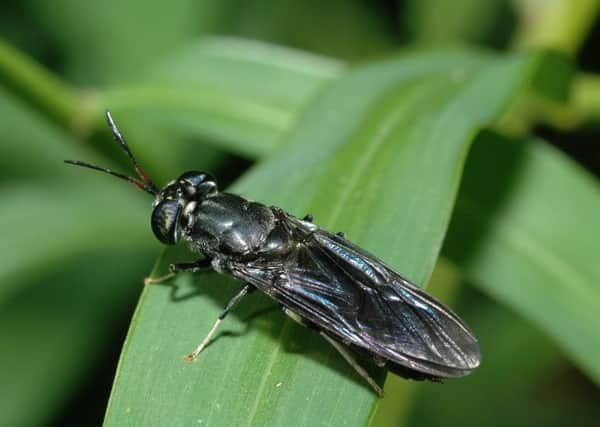Maggot farms offer golden opportunity for Scotland


The organisation says farming flies could offer a great solution for dealing with leftovers from the food production sector while also providing the ingredients to manufacture feed for farmed salmon.
The practise is already gaining popularity in Europe and other parts of the UK.
Advertisement
Hide AdAdvertisement
Hide AdTo date, there are no commercial insect farming operations in Scotland.
The report says Scotland is well placed to develop such an industry, which could play a key part in a circular economy.
It involves rearing millions of maggots on waste from farms and factories, then using the larvae as the main source of protein to make fish fodder.
Experts believe the move would benefit the environment by reducing demand for wild-caught fish to be turned into salmon feed as well as offering a major economic opportunity for Scotland.
Analysis suggests using fly larvae to treat pre-consumer food waste could generate carbon savings and £113 of economic value per tonne of waste processed.
Insect waste and by-products can also be used to make a number of other products, including fertiliser, biodiesel and chitin.
“Insect farming is a fascinating and potentially highly lucrative opportunity,” said Iain Gulland, chief executive of Zero Waste Scotland.
“It’s an idea that has already gained traction across the EU and beyond, so we’re keen to explore what the options could be for Scotland.
Advertisement
Hide AdAdvertisement
Hide Ad“Salmon farming is one area where it could play a significant role.
“Salmon is one of our biggest exports, but that success generates a huge demand for feeds, much of which comes from imported soy and wild-caught fish.
“Black soldier fly could help meet that demand in a more sustainable manner and create new business opportunities in Scotland.
“What makes black soldier fly even more exciting is the potential to convert food waste into valuable new materials. By helping to turn commercial food waste into feed stock for fish, black soldier fly could play a significant role in a more circular bio-economy.
“Of course, food waste is a major challenge and there will be no silver bullet. But with hundreds of thousands of tonnes generated in Scotland every year, anything that makes a contribution needs to be seriously considered.”
The report is due to be presented at a special workshop in Edinburgh next week.